SIT honors 35 new changemakers at 2023 commencement ceremony
August 17th, 2023 | School for International Training
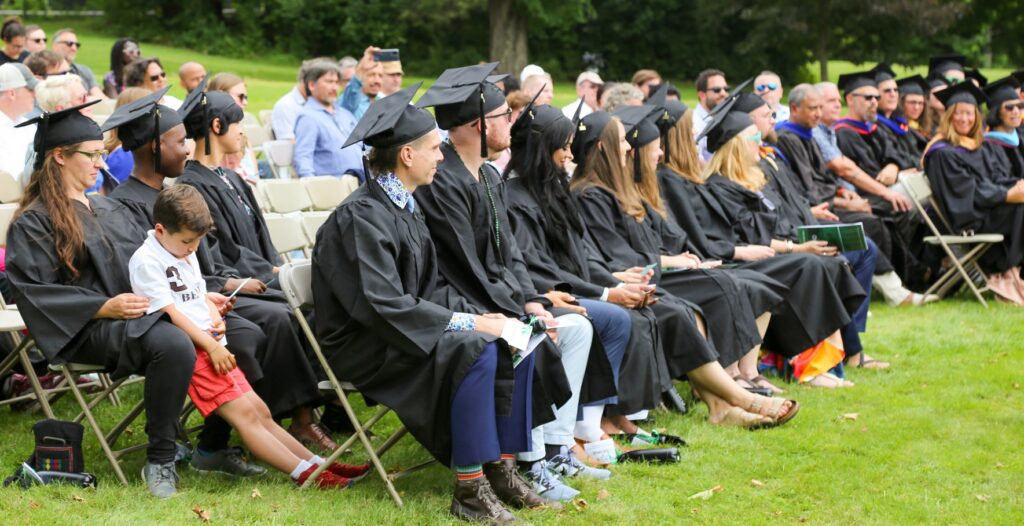
On August 12, 2023, School for International Training welcomed 35 new graduates to an extensive global network of alumni working to confront the injustices and existential challenges facing today’s world. From Indigenous rights to climate change to conflict, speakers at SIT's 57th commencement ceremony urged the graduates to work collaboratively and with humility as they pursue their careers.
The commencement ceremony took place on SIT’s Brattleboro campus, where staff and faculty members from around the world gathered with guests to celebrate students who completed their master’s degrees and graduate certificates in climate change, peace-building, humanitarian assistance, international education, sustainable development, and other critical global issues.
Fifteen students attended the ceremony in person, while others joined online. Students in SIT’s Global Master’s programs study and do their research at the institution’s global learning centers, while those in Hybrid MA programs may study from anywhere in the world, with brief summer residencies on the Vermont campus.
The ceremony opened with recognition of the stewards of three lands where SIT programs take place.
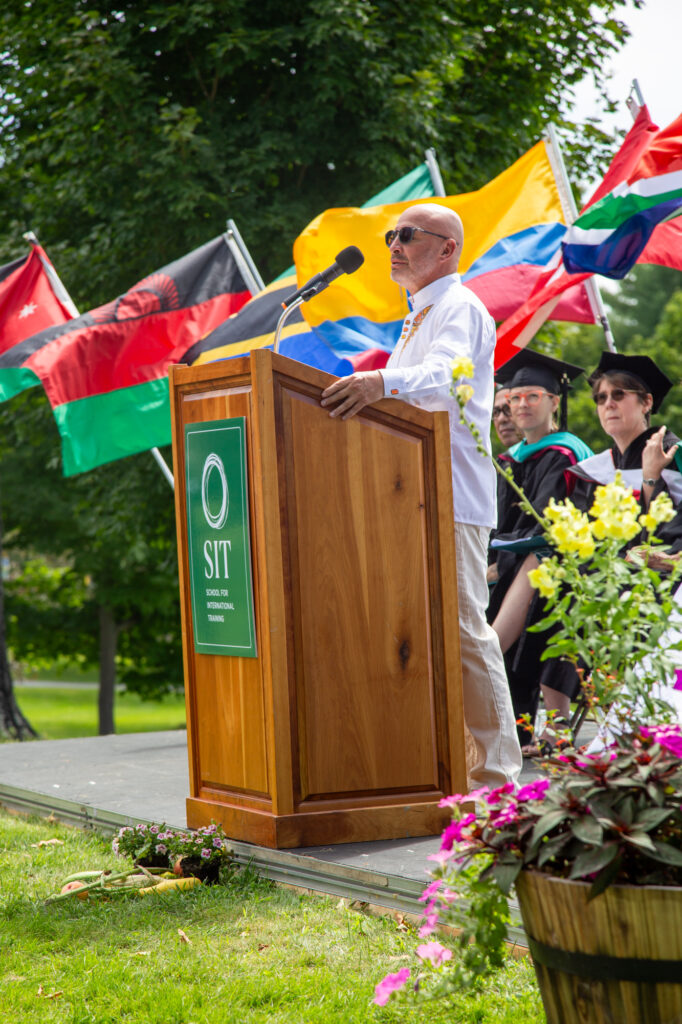
Speaking first in the Abenaki language and referring to the region by its Abenaki name, Wantastegok, Elnu Abenaki representative Rich Holschuh acknowledged, “These are the homelands of the Abenaki people. They, with their ancestors and allies have been here for 12,000 years. They are still here.”
“What we do here today is informed by the past and will create the future,” Holschuh said, “so what you say matters, and what follows matters even more. An acknowledgment implies responsibility.”
In both Quechua and English, SIT Ecuador Academic Director Fabian Espinosa offered honor, respect, and gratitude to the Elnu Abenaki Nation. “I bring light, courage, and hope from Chinchaysuyu, the northern region of the Tawantinsuyu, where the four horizons come together and become one,” said Espinosa. “I bring the guardianship and the power of its volcanos, forests, rivers, lakes, and seas to sustain our struggle, our resistance, our sovereignty and self-determination.”
In South Africa, where most of the land was seized through settler colonialism, the land ownership and management remain acutely political, said SIT Academic Director Dr. Imraan Buccus. “South Africa needs to affirm a renewed political will and commitment to addressing land hunger and speeding up land redistribution – before the poor and landless rise up and take it,” he said.
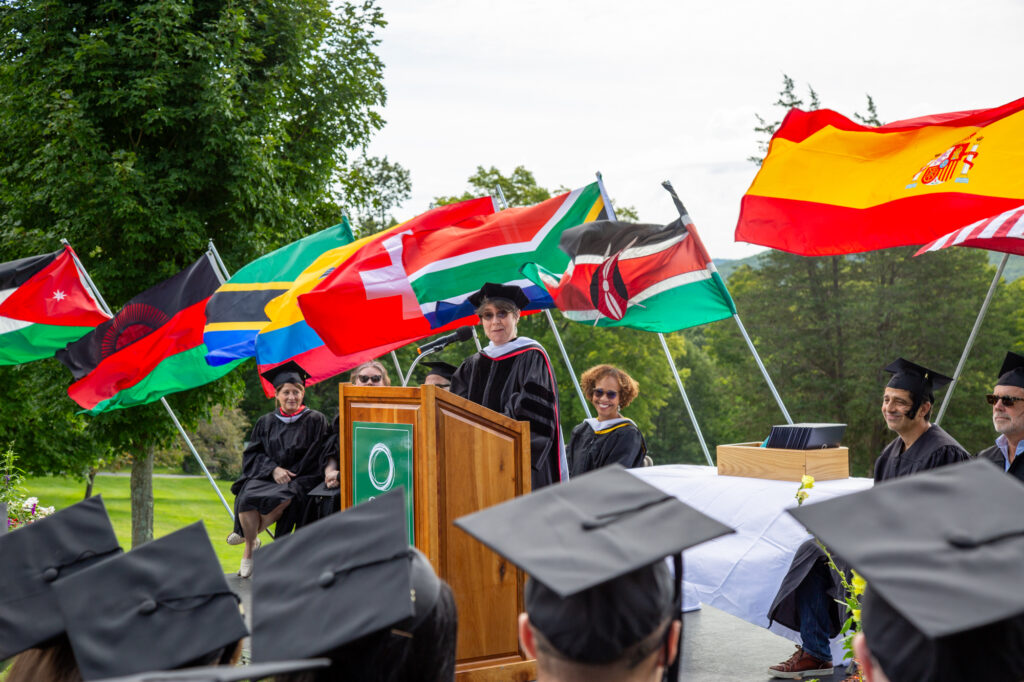
SIT President Dr. Sophia Howlett echoed calls for accountability and action. “We have a responsibility to this land and those who have held guardianship of it for so long, and to this institution that now resides here. We have a responsibility to those places where and people with whom we studied,” she said. “How will we act? What will we do to fulfill our obligations, our responsibility to these peoples and places?”
The event’s keynote speaker was Dr. Bisa Williams, a World Learning trustee and former ambassador to Niger, where the democratically elected president was recently ousted, causing regional tensions to rise.
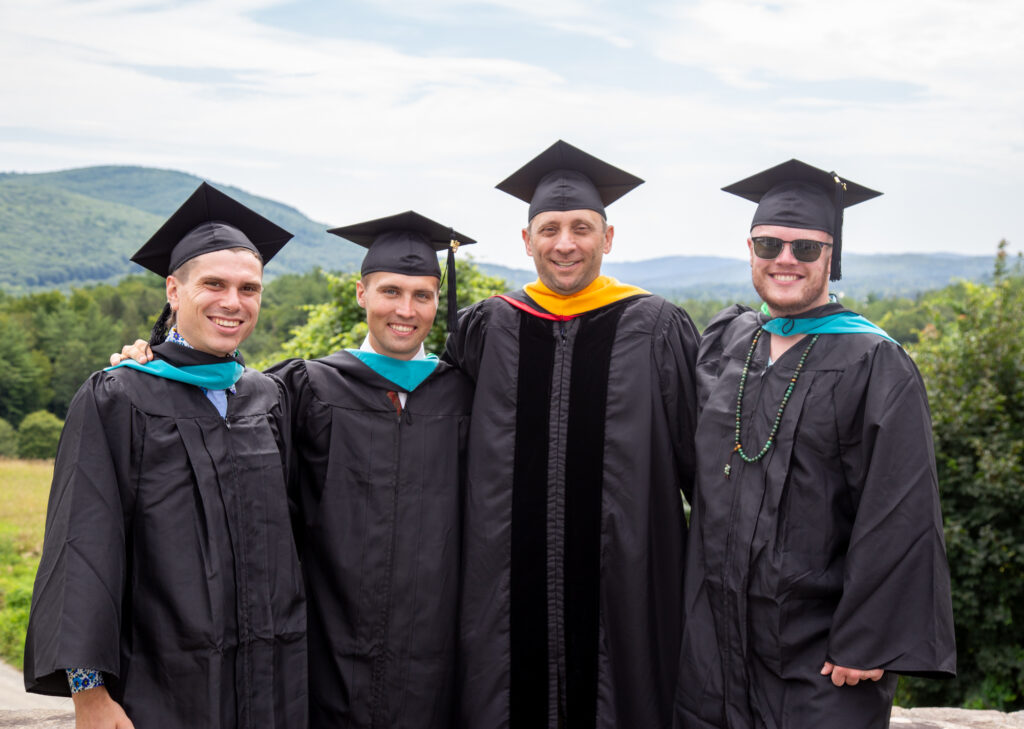
“In West Africa, imperfect democracies are being challenged, overturned by militaries; imperfect long-standing alliances in West Africa are being tossed out for unproven and in some cases demonstrably dangerous new ones,” Williams said.
At the same time, she said, desertification, flooding, food insecurity, and other results of climate change are having profound international affairs implications and growing into new catalysts of conflict.
“These many challenges on our planet are getting bigger and bigger, and their intrusion into our ever-inter-connected world grows more insidious and personal. This irrepressible evolution of things – of thinking, of technology, of international alliances and human relations – is what you will grapple with in your careers,” Williams told the graduates.
“Openness to discovery, to the unexpected, to the unimaginable will be essential for you as you commence this next phase of your lives,” she said.
“My hope is that you will take the experience of what you’ve learned here into your careers and approach our current-day and future challenges with an openness to the views of others, an understanding not of the ‘relativity’ of all things but of the imperative to adjust your thinking and your approach to match the situation before you — not the idea of the situation.”
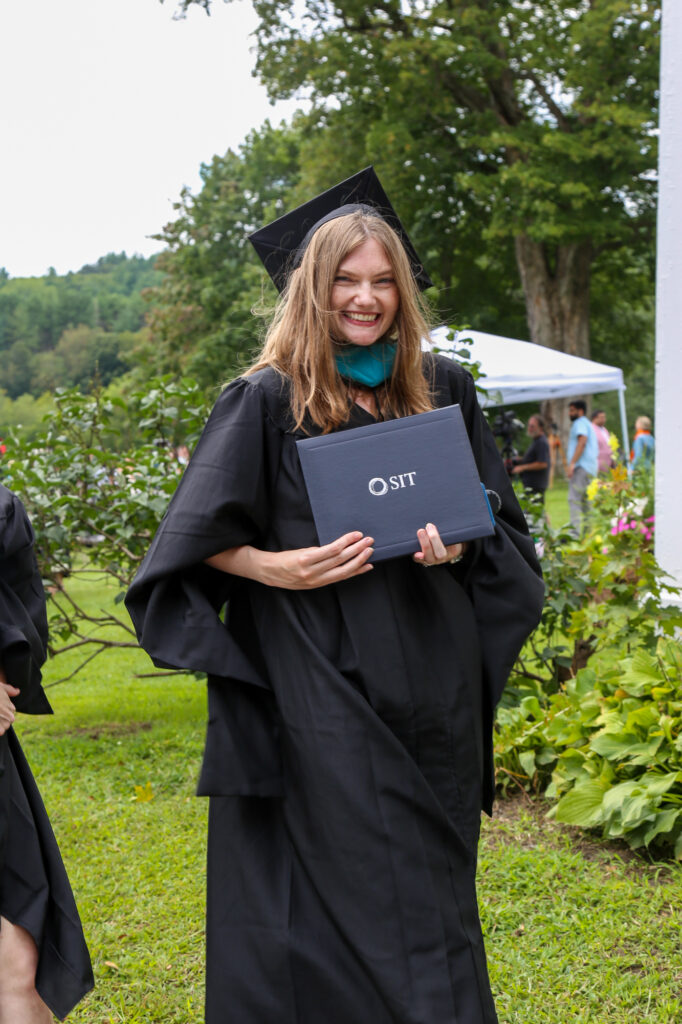
SIT student Emily Machin-Mayes participates in the ceremony.
The ceremony also included the conferral of emerita status to Dr. Leslie Turpin, who retired this summer as chair of the MA in TESOL degree after more than 30 years at SIT. “Leslie is among the best of us. She is what SIT as an institution strives to be: sincere, forthright, reflective, inclusive, and just,” said her colleague, Dr. Bruce Dayton, who chairs the MA in Diplomacy and International Relations.
Student speaker Jana Scislowicz, who earned a hybrid MA in Intercultural Service, Leadership, and Management as she continued her work with the U.S. Agency for International Development (USAID), called on her peers to “foster environments where diverse voices can be heard, celebrated, and valued.”
“Listening leaders allow the collective knowledge in the room to lead and solve the somber problems facing our world by driving innovation, fostering creativity, and creating sustainable change,” she said.
